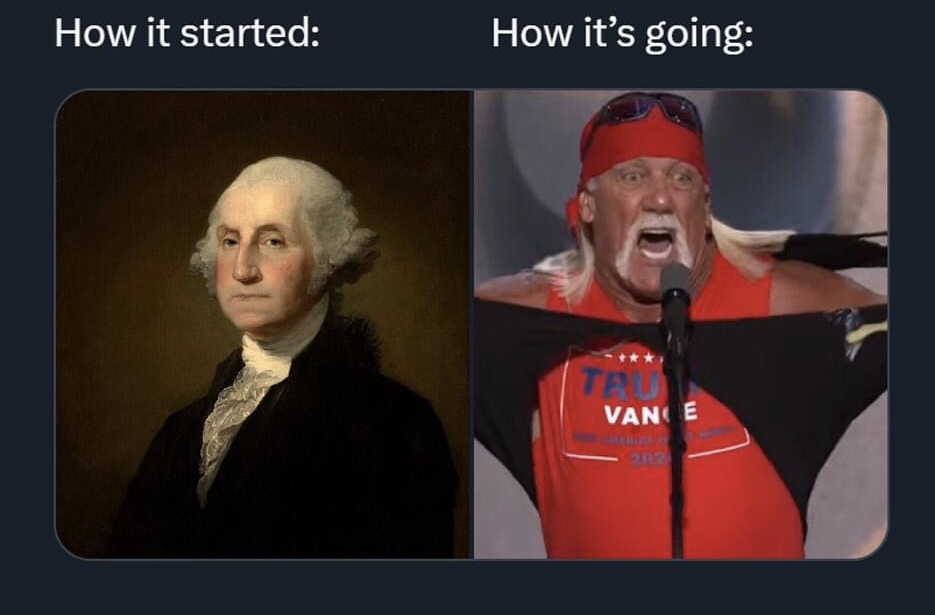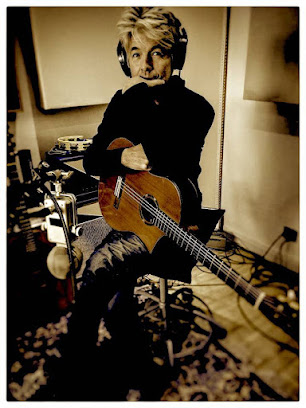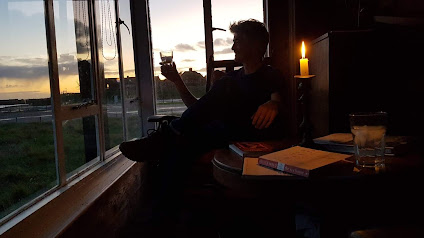“Trevor Jones finds the poetry in real life; Marcus Cliffe anchors it in the sweetest pop. Gorgeous as ever. You may cry.” The Sunday Times
Despite being based in a home studio in a rural backwater on the outskirts of West London, Miracle Mile chose to name themselves after a fictional gold rush main street half a world away where, according to adventure yarn spinner Jack London, ragged 49ers would blow their hard-won nuggets on booze and broads. They apply a similarly unorthodox approach to their career in general. The band’s core duo of singer/guitarist Trevor Jones and multi-instrumentalist/arranger/producer Marcus Cliffe have been relentless in their pursuit of the perfect song. Not the fastest, the gnarliest or the loudest, not even the most instantly commercial, but the song whose melody, lyrics, arrangement, performance and spirit might stand the test of time, giving pleasure to listeners not just for years but centuries.
They’d be the first to admit they haven’t yet found that perfect song and maybe never will, but I’d argue that their albums — the documentary evidence of that search — deserve a place alongside the best work of time-tested tunesmiths as elevated as Randy Newman, Elvis Costello or Tom Waits.
“Gorgeous melodies, hooks galore, intelligent lyrics that demand and repay careful listening, beautifully produced instrumentation, and an overall effect that combines poignancy and joy in equal measure. Music and words come together in a state as close to perfection as makes no difference, and leaves you with a delicious ache that makes you hug yourself with the sheer overwhelming joy of hearing such wonderful music. The beauty on offer here is enough to make you weep. It did me."Americana UK
Marcus Cliffe wasn’t yet on board when the first album, Bicycle Thieves, arrived in 1997 but already it was evident that frontman Jones didn’t fit in with the prevailing mode. There was no rage, bitterness or self-loathing in his songs and nothing at all turned up to eleven. Instead, he offered meticulously orchestrated slices of ordinary human life, transforming the mundane into the marvellous with carefully crafted lyrics sincerely delivered. Even here, though, the hypnotic sample-based "Recycletwo" revealed a willingness to experiment that marked Jones out as more than just a pop craftsman in the vein of Crowded House or Aztec Camera.
"Gentle enchantment. The loveliest melodies you've ever heard." UNCUT
“A melancholic ocean of poetry and sublime song-craft. Life is indeed worth living and all the richer for hearing this.” Properganda
What had started essentially as a recording project had become a five-piece live band by the time the follow-up, Candids, was released in 1998. Loaded with nagging guitar hooks and dynamic vocal interplay, it included one particularly affecting piece, "Small Ad" which featured just one line of lyric, the heart-rending couplet, "For sale, baby’s shoes, never used." With those six words, Jones conjured up a yawning abyss of grief that other writers might struggle to evoke in an entire album.
“A little oasis illuminated by musical creativity, glimpsed like a lovely mirage. Intelligent tunefulness that doesn’t kowtow to passing trends has always been as rare as fish fingernails, but it’s here.” Mojo“How to write ‘Perfect Pop’ and still remain unknown. They are magic, charming, almost naïve in their perception of beauty.” La Repubblica (Italy)Jones quickly realised that live performance was not his forte and retired to the womb of the studio for 1999’s third album,
Slow Fade, which also saw the birth of the partnership that would lift
Miracle Mile higher still above the norm.
Marcus Cliffe, in demand as a player for
Steve Earle, Emmylou Harris, Daniel Lanois, Mark Knopfler and others, was drafted in on upright bass.
Immediately the music took a more intimate turn, with
Jones exploring the little things that illuminate the big things. Almost every song offers up at least one unforgettable line, like
"I'd rather be ashes than dust" in "
Everybody Loved You" or the concept of filling the void left by his loss of faith
"with despair and metalware" in
"Starwatching".Slow Fade was further enhanced by the delicately filigreed swirls and swoops of England’s finest steel guitar maestro, B
.J. Cole, whose style sat so well with
Jones and
Cliffe that he has become virtually a full-time member of the band.
"Meticulously orchestrated, careful and complex, this is canny songwriting leavened by bona fide humanity." Q “A lush swoon of gorgeous pop. Genuinely life enhancing and life changing. Jones is in a class of one. Near-perfect explorations of the human heart.” AmericanaUk
And then, out of nowhere, catastrophe struck. Trevor Jones’ sister died in tragic circumstances. It’s typical of the man that, rather than wallowing in his grief as he had every right to do, he dealt with his loss in the quiet, honest dignity of "Sister Song", the achingly lovely tribute that concludes the fourth album, Alaska. It can’t have been coincidence that the album, despite its meltingly beautiful musical landscape, was named for one of the coldest places on earth.
“Miracle Mile’s obscurity remains unfathomable. Perfect adult pop.” The Sunday Times“Moves you to tears and refreshes the soul. Scintillating.” Maverick By the time of Stories We Could Tell in 2004, Miracle Mile were drawing critical plaudits in every significant British magazine and newspaper, along with comparisons to such pop perfectionists as Prefab Sprout and The Blue Nile. Critics were noting that Miracle Mile was fast becoming a repository of timelessly romantic music fueled by the same shamelessly emotional human concerns that inspired the great standards. More than this, it was being noticed that while most bands go into decline after two or three albums, Miracle Mile were getting better, perhaps because they’d avoided the trap of trying to be contemporary, and had no need to be more outrageous than the competition, largely because they didn’t see music as a competitor sport.
“Classic songwriting, gorgeously realised.” The Times
“A tender sadness. Songs that have universal resonance.” NetRhythms
“Achingly tender.” Folk Radio UK
The sixth album, Glow, showed up in 2005 and found Jones and Cliffe further expanding their musical palette mixing Celtic folksiness with slow, semi-industrial percussion on the inspirational "An Average Sadness", blending Badalamenti guitars with Bacharach horns on "What Kate Did Next" and opening "Strange Sympathy" with a beautifully synthesised string orchestration before letting the song melt seamlessly into a laid-back country-rock rumination on the gap between aspiration and acquisition. Glow was also their most lavishly packaged disc, gorgeously presented at no small cost to themselves.
“A gorgeous album that few will hear - unless there’s justice in the world.” The Wall Street Journal“Jones has compiled possibly the finest catalogue of adult pop. Gently beautiful and genuinely moving.” The Sunday Times
“You hug yourself with the sheer overwhelming joy of hearing such wonderful music. The beauty on offer here is enough to make you weep. It did me.” AmericanaUK
Album No. 7, Limbo, offered fifteen songs overflowing with sensitively wrought melodies and heart-fluttering lyricism. If it’s not a contradiction in terms, Limbo was even more quietly passionate than usual, deliciously understated and, at times, devastatingly tear-jerking.
“Trevor Jones finds the poetry in real life; Marcus Cliffe anchors it in the sweetest pop. Gorgeous as ever. You may cry.” The Sunday Times“Intellectually as well as emotionally engaging.” Mojo
"Overflowing with sensitively wrought melodies and heart-fluttering lyricism. If it's possible, this is even more passionate than usual, deliciously understated and tear jerking." HiFi News‘In Cassidy’s Care’ followed in 2012 and received similar critical acclaim.
“Miracle Mile are pop’s most consistently excellent cottage industry.” The Sunday Times"Memorable tunes wrapped around emotionally involving lyrics." HiFi News
"Truly outstanding. Another little masterpiece has been born." AmericanaUk
“Masterpieces of subtlety and observation clothed in sumptuous, lush melodies.” RnR
Miracle Mile may just be too concerned with timeless quality for their own short-term commercial good. They’ll never sink a fang into the jugular when they can plant a whisper of a kiss on that sensitive spot at the nape of the neck and set off a tiny ripple that will, in the fullness of time, explode in the heart. I, for one, wouldn’t want it any other way.
Johnny Black


















































